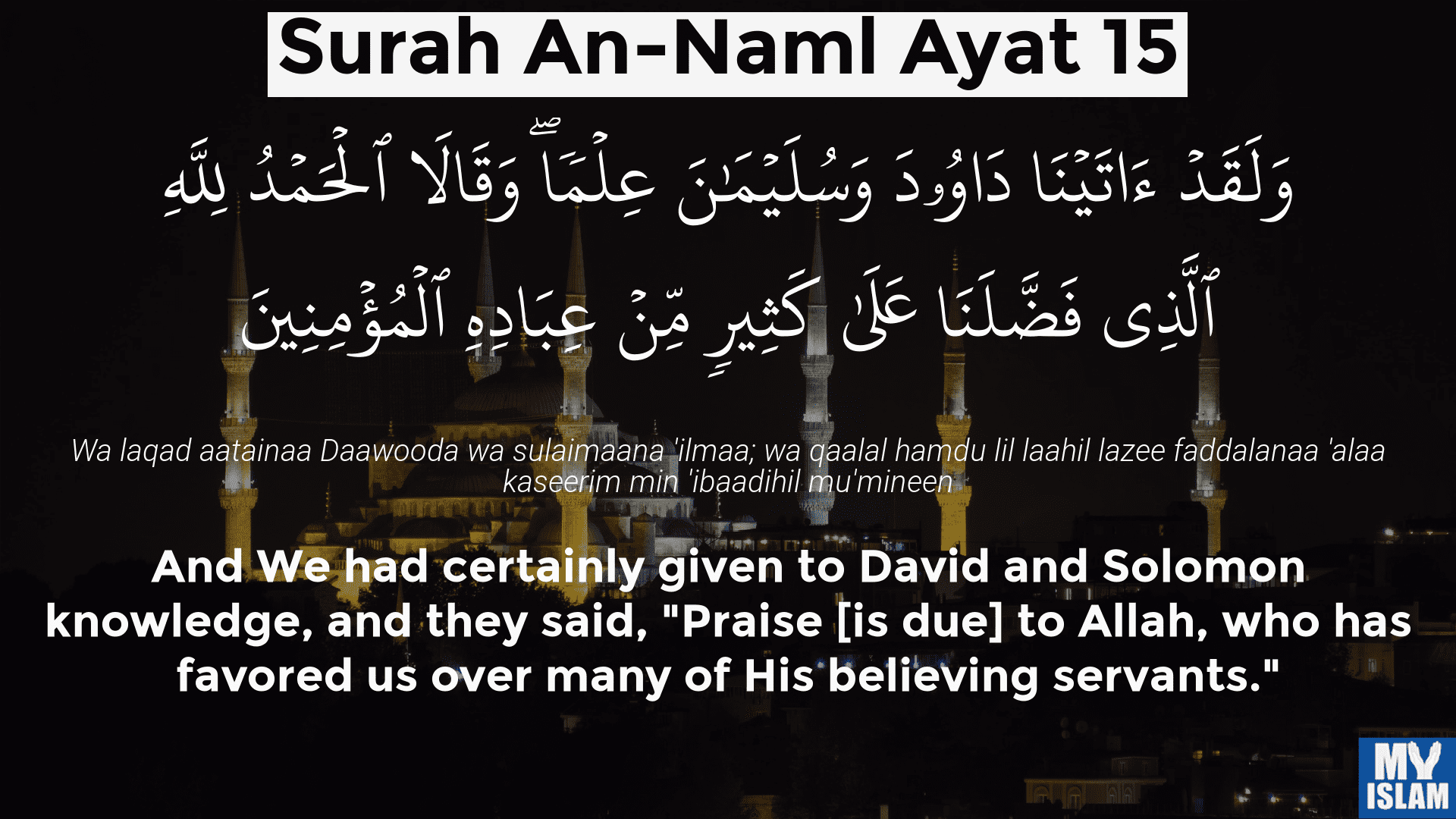Surah An-Naml Ayat 11 in Arabic Text
English Translation
Here you can read various translations of verse 11
Otherwise, he who wrongs, then substitutes good after evil – indeed, I am Forgiving and Merciful.
“But if any have done wrong and have thereafter substituted good to take the place of evil, truly, I am Oft-Forgiving, Most Merciful.
except he who has committed some wrong. But if he substitutes good in place of evil, I am Most Forgiving, Most Compassionate.
“Except him who has done wrong and afterwards has changed evil for good, then surely, I am Oft-Forgiving, Most Merciful.
Save him who hath done wrong and afterward hath changed evil for good. And lo! I am Forgiving, Merciful.
Except him who has done (an) injustice, (and) thereafter substituted fair (deeds) for odious (deeds). Then surely I am Ever-Forgiving, Ever-Merciful.
I am truly most forgiving and merciful to those who do wrong,and then replace their evil with good.
لیکن جو لوگ ﻇلم کریں پھر اس کے عوض نیکی کریں اس برائی کے پیچھے تو میں بھی بخشنے واﻻ مہربان ہوں
Quran 27 Verse 11 Explanation
For those looking for commentary to help with the understanding of Surah An-Naml ayat 11, we’ve provided two Tafseer works below. The first is the tafseer of Abul Ala Maududi, the second is of Ibn Kathir.
Ala-Maududi
(27:11) except he who has committed some wrong.[14] But if he substitutes good in place of evil, I am Most Forgiving, Most Compassionate.[15]
14. This exception can be contiguous as well as remote. In the first case it will imply that there can be a genuine cause of fear if the messenger has committed an offense; in the second case it will mean: “None should have any cause of fear in My presence, unless, of course, someone has committed an offense.”
15. That is, “If even an offender repents and reforms himself and does good instead of evil, I will pardon him.” This implied both a warning and a good news. The Prophet Moses (peace be upon him) had killed a Copt inadvertently and fled from Egypt. This was an offense to which a subtle reference was made. When this offense was committed unintentionally by the Prophet Moses (peace be upon him), he had immediately offered repentance to Allah, saying, “O my Lord! I have sinned against myself, so forgive me.” So, “Allah forgave him” there and then. (Surah Al-Qasas, Ayat 16). Here the good news of the same forgiveness has been given to him, as if to say, “O Moses, there could be a genuine cause for you to feel afraid in My presence, because you had committed an offense, but when you have changed the evil into good, I have nothing but forgiveness and mercy for you. I have not called you here at this time to punish you, but I am going to send you on a great mission with wonderful miracles.”
Ibn-Kathir
The tafsir of Surah Naml verse 11 by Ibn Kathir is unavailable here.
Please refer to Surah Naml ayat 7 which provides the complete commentary from verse 7 through 14.
Quick navigation links






